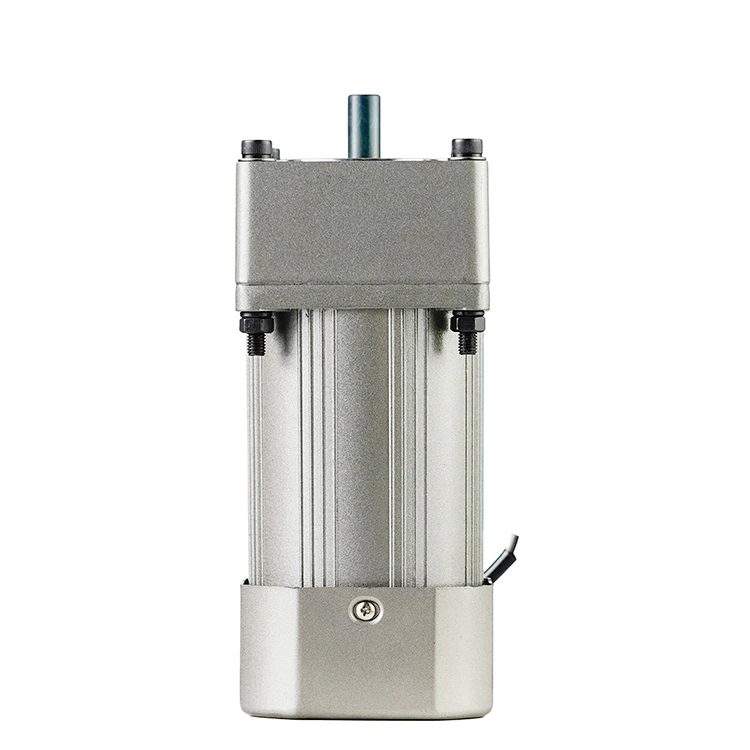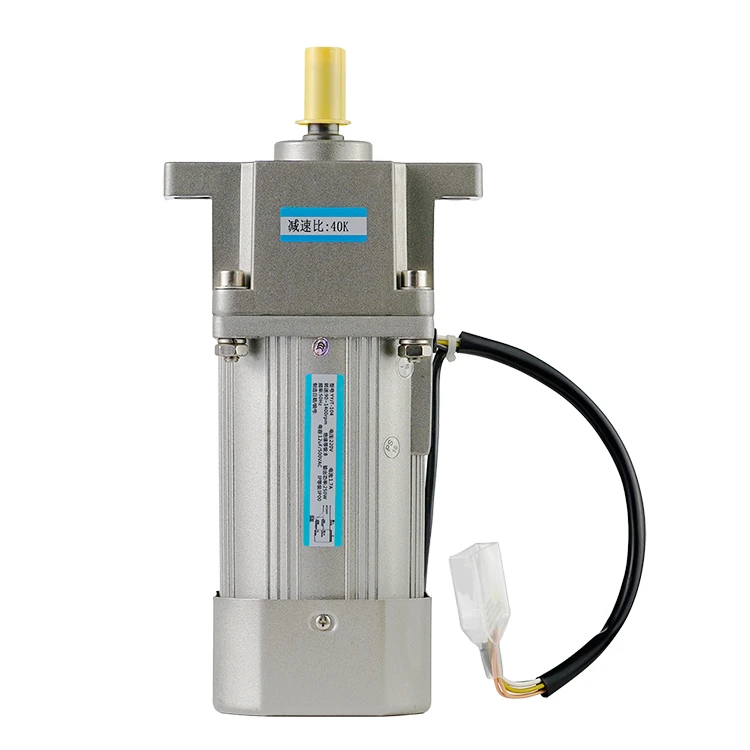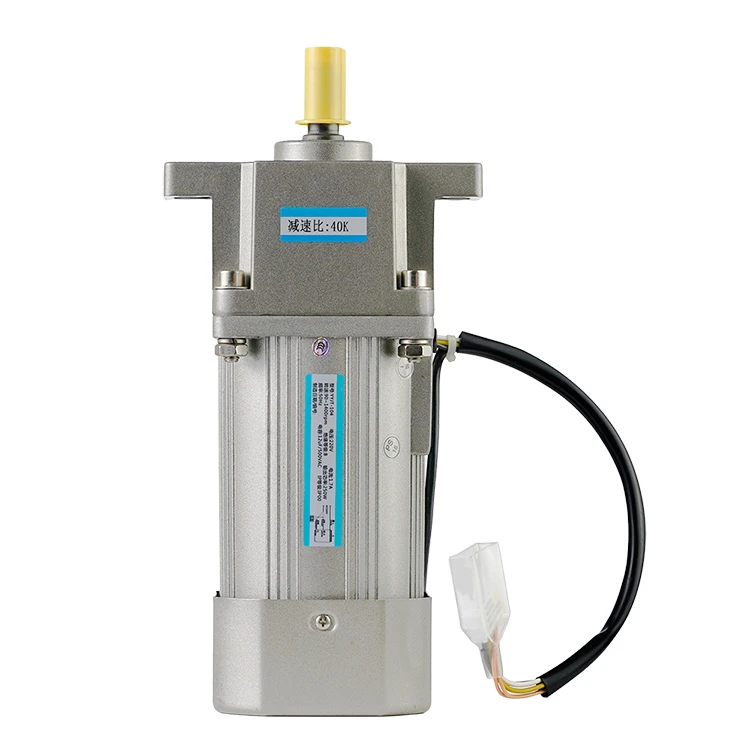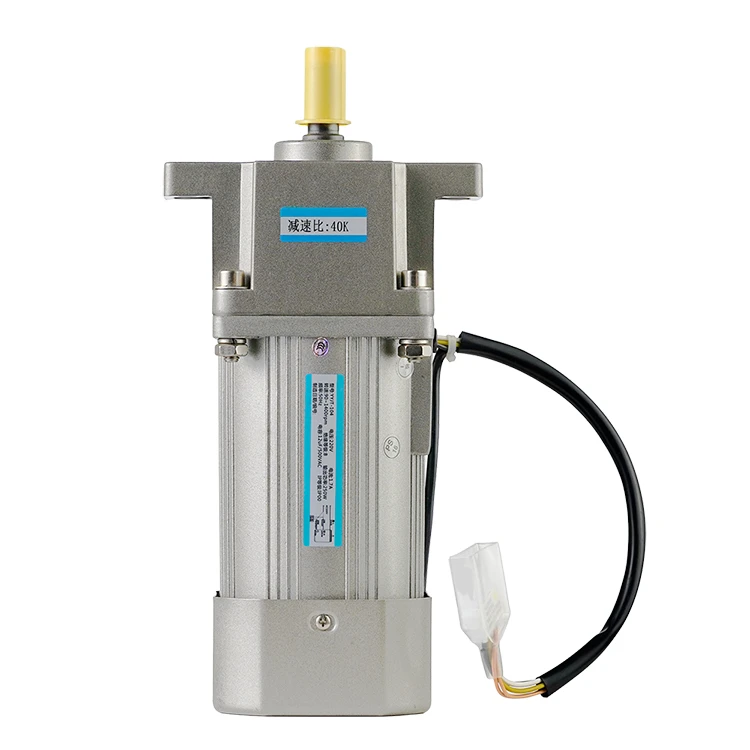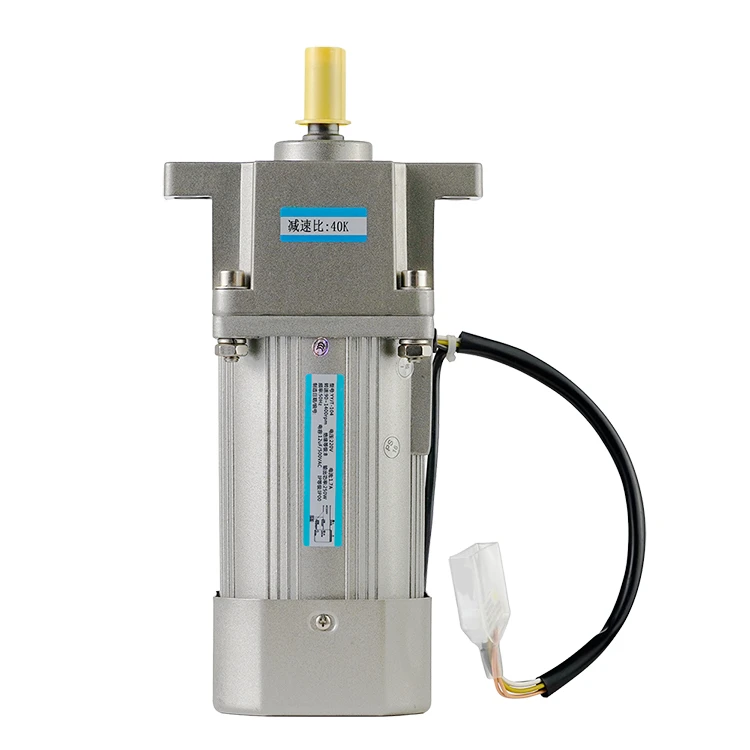Closed-Loop Stepper Motor
2024-09-11 15:41:30
Stepper motors are widely used in industrial applications due to their ability to provide precise motion control. They are found in a variety of devices ranging from 3D printers and CNC machines to robotics and medical equipment. A traditional stepper motor operates in an open-loop configuration, where the motor moves a fixed number of steps for each command without feedback on its actual position. However, one of the limitations of open-loop stepper motors is that they can lose steps under certain conditions, such as when the load exceeds the motor's capacity. This can result in inaccurate positioning, especially in dynamic environments. To overcome these limitations, closed-loop stepper motors have been developed. Closed-loop systems incorporate feedback mechanisms, allowing the motor to dynamically adjust its performance based on the real-time conditions of the load and the motor's operation. This article will explore closed-loop stepper motors in detail, examining their working principles, advantages, and applications.

What is a Closed-Loop Stepper Motor?
A closed-loop stepper motor is a hybrid between a traditional stepper motor and a servomotor. It integrates feedback from an encoder or sensor into the control system to monitor the motor's actual position and speed. Unlike open-loop stepper motors, where the controller assumes that the motor has moved the commanded steps, the closed-loop system constantly monitors the motor's performance and adjusts the input accordingly. This real-time feedback allows the motor to compensate for any deviations, such as missed steps or variations in load, ensuring higher accuracy and reliability.
The feedback mechanism in a closed-loop stepper motor typically includes a rotary encoder, which is mounted on the motor's shaft. The encoder provides information about the motor’s position, velocity, and rotation direction. This information is sent back to the controller, which compares the actual performance with the desired command. If discrepancies are detected, the controller modifies the input signals to correct the motor's position or speed. This process occurs continuously, allowing the motor to maintain precise control even under variable loads or operating conditions.
How a Closed-Loop Stepper Motor Works
Closed-loop stepper motors operate through a feedback control system that monitors and adjusts the motor’s behavior. The motor receives commands from a controller, typically in the form of pulse signals that dictate the number of steps the motor should move. As the motor rotates, the encoder measures the position and speed of the rotor, sending this data back to the controller. The controller then compares this feedback with the desired motion profile.
When the feedback shows that the motor has deviated from the expected performance, such as missing steps due to load fluctuations or overcoming resistance, the controller adjusts the input current or voltage to bring the motor back on track. For example, if the motor is lagging behind due to a sudden increase in load, the controller increases the current to the motor to provide more torque, ensuring that the motor stays on its intended path.
This ability to correct errors in real-time gives closed-loop stepper motors a significant advantage over open-loop systems, where missed steps or inaccuracies can accumulate and lead to large deviations over time.
Advantages of Closed-Loop Stepper Motors
Closed-loop stepper motors offer several key advantages over traditional open-loop stepper motors:
- Improved Positioning Accuracy
The primary advantage of closed-loop systems is their ability to provide higher accuracy. By constantly monitoring the motor's position and adjusting the input accordingly, closed-loop stepper motors can maintain precise control even when the load or operating conditions change. This makes them particularly suitable for applications where accurate positioning is critical.
- Reduced Heat Generation
In open-loop systems, the current supplied to the motor is typically kept constant, regardless of the load. This can lead to unnecessary heat generation, especially when the motor is operating under low loads. In contrast, closed-loop systems adjust the current based on the actual load, reducing power consumption and minimizing heat generation. This can help extend the lifespan of the motor and reduce the need for additional cooling systems.
- Higher Efficiency
Closed-loop stepper motors are generally more efficient than their open-loop counterparts. By only supplying the necessary current to the motor, they reduce energy wastage and improve overall system efficiency. This is especially important in applications where power consumption is a critical consideration.
- Increased Torque and Speed
Another advantage of closed-loop stepper motors is their ability to provide higher torque at low speeds and maintain torque at higher speeds. This is because the feedback mechanism allows the motor to operate at its optimal performance levels, even when the load changes. As a result, closed-loop stepper motors can achieve higher speeds and handle heavier loads than open-loop motors.
- No Loss of Steps
One of the major drawbacks of open-loop stepper motors is the potential for lost steps, which can occur when the motor is unable to generate enough torque to overcome the load. In closed-loop systems, the feedback mechanism ensures that the motor can compensate for variations in load and avoid losing steps. This makes closed-loop stepper motors ideal for applications where reliability and repeatability are crucial.
- Quiet Operation
Closed-loop stepper motors generally operate more quietly than open-loop systems because they do not need to operate at full current all the time. The reduced current and optimized motion profile result in less noise and vibration, making closed-loop systems more suitable for noise-sensitive environments.
Applications of Closed-Loop Stepper Motors
Closed-loop stepper motors are used in a wide range of applications across various industries. Some of the most common applications include:
- Industrial Automation
In manufacturing and automation systems, closed-loop stepper motors are used to drive precise motion in assembly lines, conveyors, and robotic arms. Their high accuracy and reliability make them ideal for tasks that require precise positioning, such as pick-and-place operations, labeling, and packaging.
- CNC Machines
Closed-loop stepper motors are commonly used in CNC (Computer Numerical Control) machines for tasks such as milling, drilling, and cutting. The feedback mechanism ensures that the motor can maintain accurate control even when cutting through varying materials or when the load changes suddenly.
- 3D Printers
In 3D printing, the accuracy and repeatability of closed-loop stepper motors are essential for producing high-quality prints. The feedback control ensures that the printer head moves precisely along the desired path, minimizing errors and improving print quality.
- Medical Equipment
Medical devices often require precise and reliable motion control. Closed-loop stepper motors are used in applications such as imaging equipment, surgical robots, and patient positioning systems, where accuracy and safety are paramount.
- Robotics
Robotic systems require precise motion control to perform complex tasks. Closed-loop stepper motors provide the necessary accuracy and reliability for applications such as robotic arms, mobile robots, and autonomous systems.
- Textile Machinery
In the textile industry, closed-loop stepper motors are used to control the motion of weaving and knitting machines. The ability to maintain precise control over the motor's position ensures that the fabric is produced with consistent quality.
Conclusion
Closed-loop stepper motors offer significant advantages over traditional open-loop systems, particularly in applications that require high accuracy, reliability, and efficiency. The feedback mechanism allows the motor to adjust its performance in real-time, ensuring precise motion control even under varying load conditions. This makes closed-loop stepper motors an ideal choice for industries such as automation, CNC machining, robotics, and medical equipment.
As the demand for precision and reliability continues to grow in modern industries, closed-loop stepper motors are likely to become increasingly important in a wide range of applications.
See What Lunyee Can Do For You
Contact Us
- 8619149417743
- +86-0371-5562 0274
- [email protected]
- Zhengzhou, Henan Province, China
- Mon-Fri: 9:00 - 18:00
